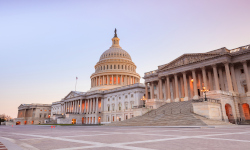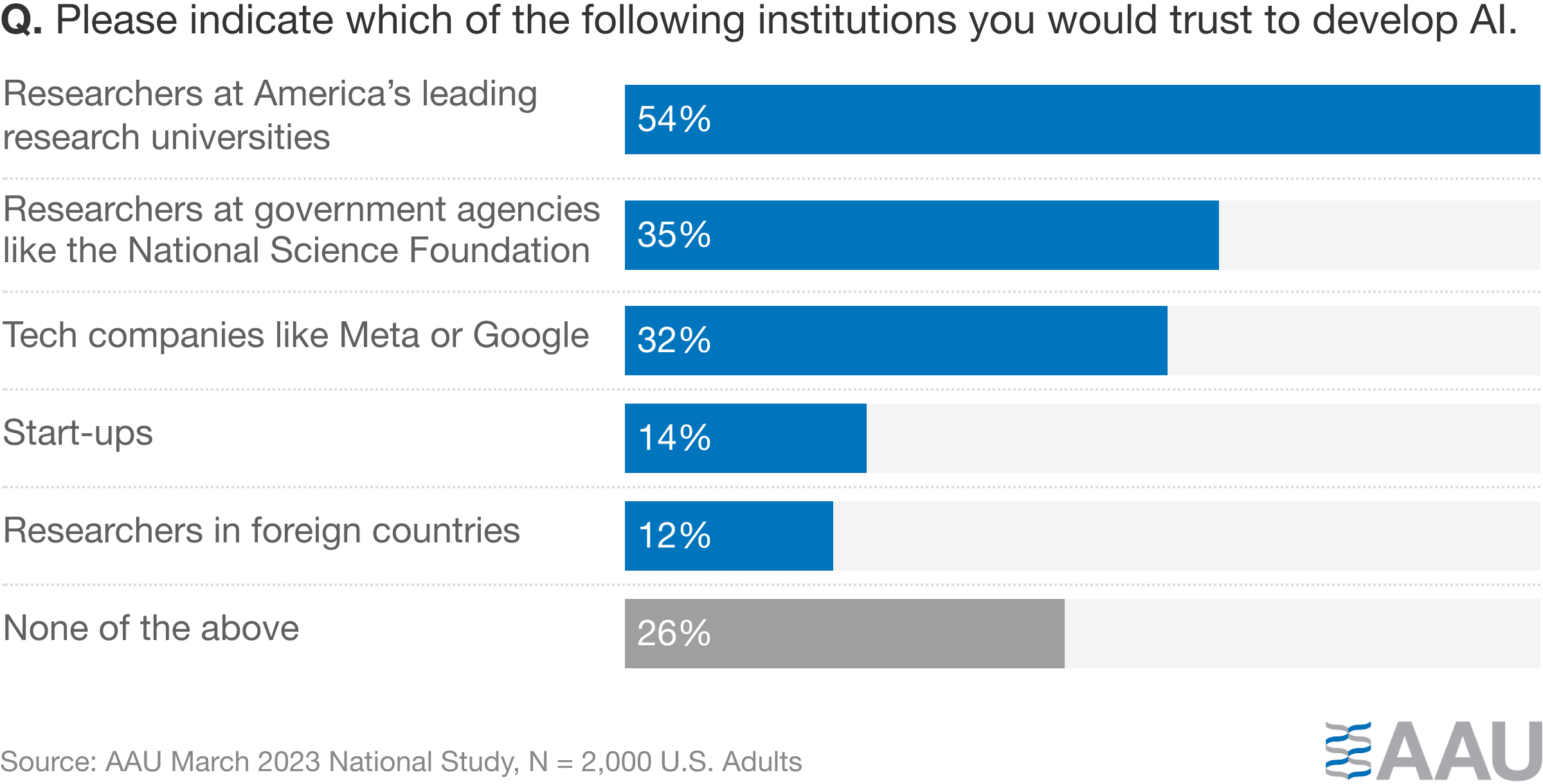 House Passes FY25 National Defense Authorization Act After Ruling Out Amendments Problematic for Research Universities
House Passes FY25 National Defense Authorization Act After Ruling Out Amendments Problematic for Research Universities
The House Rules Committee met last week to consider amendments to the FY25 National Defense Authorization Act (H.R. 8070). Lawmakers submitted more than 1,300 amendments for consideration. AAU is pleased to report that the committee rejected two amendments that would have required some schools to reimburse the federal government for federal financial aid provided to their students and would have harmed our nation’s scientific and economic competitiveness by discouraging researchers in the United States from participating in foreign collaborations.
On Friday, the full House voted 217-199 to pass the FY25 NDAA; however, House Republicans attached other amendments restricting access to abortion, medical care for transgender military personnel, and federal efforts to combat climate change. These controversial additions will complicate its passage in the Senate.
The two amendments that were exclude would have inserted the Bipartisan Workforce Pell Act and the Defending Education Transparency and Ending Rogue Regimes Engaging in Nefarious Transactions (DETERRENT) Act into the FY25 NDAA. The Bipartisan Workforce Pell Act would have expanded the Pell Grant program to support low-income students enrolled in short-term education programs, but would have offset the cost of that expansion by requiring some universities to pay for their students’ unpaid federal student loan balances. While AAU supports the expansion of the Pell Grant program, it does not support the targeting of specific institutions to pay for it. The DETERRENT Act would have made changes to Section 117 of the Higher Education Act, which governs how institutions and faculty disclose gifts from or contracts with foreign sources.
Earlier this month, AAU joined the American Council on Education and other higher education associations in sending a letter to the Rules Committee opposing the inclusion of the two provisions in the NDAA. The letter argued that both amendments were “non-germane” to the NDAA, should be ruled out of order, and should instead be considered “through the regular process, including consideration and hearings by the Senate HELP [Health, Education, Labor and Pensions] Committee.”
The letter specifically opposed the funding offset included in the Bipartisan Workforce Pell Act, noting that it unfairly targets certain institutions and subjects them “to unequal status in federal programs.” It also noted that the bill might force some institutions to withdraw entirely from federal lending programs and could force low-income students at those institutions to turn to far costlier options to finance their education. The letter also opposed the DETERRENT Act and noted that its “massive and problematic expansion of Section 117” would “impact the privacy of research faculty and staff; threaten productive international collaborations; and task the Department of Education with new authorities it is not equipped to implement.”
UCLA, Yale Select New Leaders, UW President Announces Departure
Last week, the University of California, Los Angeles announced that Julio Frenk will become the public university’s seventh chancellor on January 1, 2025. Frenk is currently the president of the University of Miami and will replace outgoing UCLA Chancellor Gene Block, who is retiring at the end of the month. Frenk, who spent much of his career in his native Mexico, is a renowned public health researcher and will be the first Latino to lead UCLA.
Late last month, Yale University announced that its board of trustees has appointed Maurie McInnis as the institution’s next president. McInnis is the current president of Stony Brook University and will succeed current Yale President Peter Salovey, who is also retiring at the end of the month. McInnis is a distinguished cultural historian and will start her tenure at Yale on July 1.
Meanwhile, University of Washington President Ana Mari Cauce announced that this year will be her last as the university’s president. Cauce started her career at UW in 1986, when she was hired as an assistant professor of psychology. She was selected as the university’s 33rd president in 2015 and became the first woman, the first Latina, and first openly gay person to serve as the university’s president. AAU President Barbara R. Snyder said in a statement that Cauce’s “remarkable legacy is apparent in the university’s tremendous success in research, education and service and also in the lives of thousands of the UW community members she touched.”
News of Interest
The New York Times: Stanford Becomes the Latest School to Reinstate Test Scores Requirement – Stanford University announced that it is joining the growing number of institutions reinstating their SAT and ACT testing requirements for students applying for admission. The university noted in a statement that an undergraduate admissions faculty committee had found that standardized test scores were “an important predictor of academic performance at Stanford.” The university affirmed, however, that test scores will only be “one part of a holistic review” of applications.
Inside Higher Ed: Women Make Global Gains as Researchers, But Gaps Persist – A new study by Elsevier, an academic publishing company, found that, while there has been a “general upward trend” of women in research globally, there is still much work to be done. In the United States, as of 2022, women made up 51% of researchers in the social and health sciences, but only 29% in STEM fields. Further, women researchers in the United States received just over 30% of research grants in 2022, and only appeared on 28% of patent applications filed; a staggering 97% percent of patent applications listed male researchers.
The New York Times: U.C. Berkeley’s Leader, a Free Speech Champion, Has Advice for Today’s Students: Tone It Down – University of California, Berkeley Chancellor Carol Christ, who is retiring at the end of the month, herself was a student protestor back in the 1960s. But things have changed much since then because of the impact of social media, she said. Christ also noted that she’s “come to recognize that while freedom of speech is an absolute, just because you have the right to say something doesn’t mean it’s right to say.” Universities such as Berkeley, she said, must teach students how to be responsible with their speech and to consider the effect it has on others.
The Orange County Register – Nearly Half of UC Irvine Bachelor’s Degrees Earned by First-Generation Students – Of the more than 9,000 undergraduate students receiving bachelor's degrees this year at the University of California, Irvine, nearly half are first-generation students and more than 2,200 are Latinos. In a statement, UCI Chancellor Howard Gillman said: “This graduating class highlights how well UC Irvine is serving the people of our state by offering a world-class education to the best and brightest students, regardless of their financial circumstances, and acting as a powerful engine of upward economic mobility.”
The Washington Post: Students Undeterred by Affirmative Action Ruling, Application Trends Show – A new report released by Common Application reveals that, despite the Supreme Court’s ruling prohibiting affirmative action in college admissions, “students across racial and ethnic groups continued to apply to selective colleges at similar rates when compared with prior year.” Higher education experts say that additional information about the impact of the ruling will come later this year once admissions and enrollment data become available.
Featured Research
Traffic Speeds Decrease When Bike Lane Is Present
Researchers at Rutgers University found that installing a bike lane on a road that leads to a high-traffic intersection has a “traffic calming” effect. Adding a lane, they found, reduces driving speeds and creates a safer environment for drivers, bikers, and pedestrians alike.
No, China Is Not Buying Up All US Farmland
Cornell University-led research found that, while foreign ownership of farmland in the United States has increased over the last two decades, “adversary” countries like China, Russia, and Iran only own a combined 1% of the 40 million acres of foreign-owned U.S. farmland. The top foreign country in terms of ownership, the research found, is Canada.
Featured Research

Traffic Speeds Decrease When Bike Lane Is Present
Researchers at Rutgers University found that installing a bike lane on a road that leads to a high-traffic intersection has a “traffic calming” effect. Adding a lane, they found, reduces driving speeds and creates a safer environment for drivers, bikers, and pedestrians alike.

No, China Is Not Buying Up All US Farmland
Cornell University-led research found that, while foreign ownership of farmland in the United States has increased over the last two decades, “adversary” countries like China, Russia, and Iran only own a combined 1% of the 40 million acres of foreign-owned U.S. farmland. The top foreign country in terms of ownership, the research found, is Canada.
Stat of the Week

Majority of Americans Trust America’s Leading Research Universities to Develop AI
Polling shows that the American public is increasingly aware of, and uneasy about, artificial intelligence and its effects. A 2023 study from the Pew Research Center showed that “52% of Americans are more concerned than excited about AI in daily life, compared with just 10% who say they are more excited than concerned; 36% feel a mix of excitement and concern.” Recent studies also suggest that the public isn’t certain that the government or industry will be able to regulate AI as it continues to develop.
AAU’s own study from last year showed, however, that Americans trust leading research universities more than most other institutions – and especially tech companies – to develop AI. A majority (54%) of Americans in AAU’s March 2023 survey said they trust researchers at America’s leading research universities “to develop AI.” This is significantly more than the shares of Americans who said they trusted “government agencies like the National Science Foundation” (35%), “tech companies like Meta or Google” (32%), tech start-ups (14%), or “researchers in foreign countries” (12%).